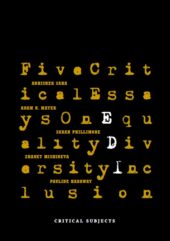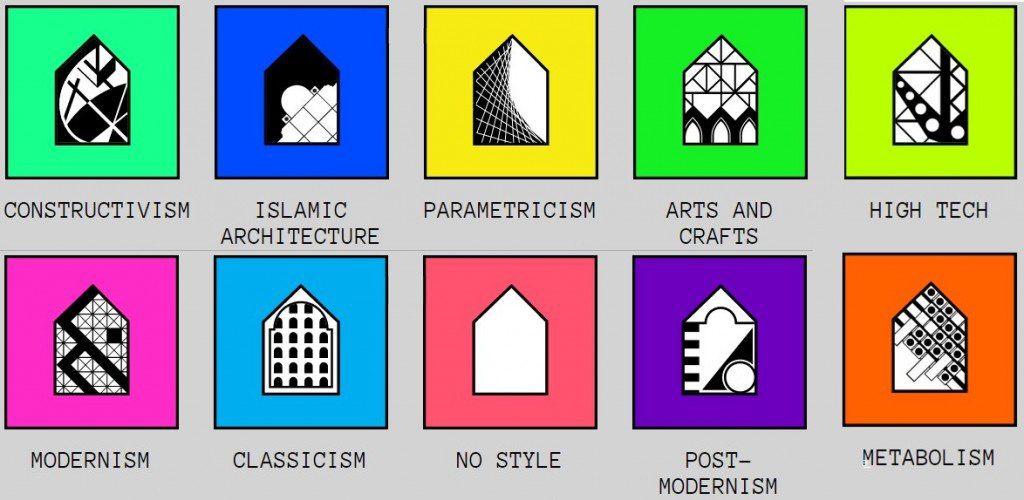Publications
NEW:
China’s Counter Urbanisation: The Great Leap Backwards
Urbanie and Urbanus, Issue 11
HKIUD Journal, Jan 2025
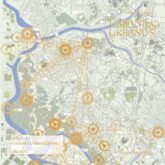 China’s urbanisation – it’s speed and extent – has become the stuff of legend: growing from an urban population of 17% in 1976 to around 64.6% of the total population in 2023. During this time, of course, the national population has also risen massively.
China’s urbanisation – it’s speed and extent – has become the stuff of legend: growing from an urban population of 17% in 1976 to around 64.6% of the total population in 2023. During this time, of course, the national population has also risen massively.
As a number of researchers have pointed out, Chinese statistics have always been difficult to interpret or to accept, but we have a reasonable assumption that China’s population in 1975 was between 850–931 million; and at its peak in 2022, it was 1.41 billion. In other words, its urban catchment increased statistically and numerically, from around 140 million to 945 million.
However, in recent years, a number of factors have influenced the relentless rise in China’s urban population and recalibrated relations with the rural areas. This paper seeks to explore a few of these issues; namely the impact of Covid (and, more importantly, the lockdown of society); the housing crisis and its impact on the national economy; the historical and contemporary influence of a national self-sufficiency narrative, and the consequences of population decline. All of these stories are wrapped up in the urban v rural divide that continues to blight the country. Whether this societal division can be resolved into a more liberal definition of free movement – regardless of relations to land designation – is yet to be resolved, but there are changes currently taking place that will redefine the way that urban and rural areas and occupants are conceptualised. This paper is a short exploration of the possibilities and challenges arising from this socio-political shift in China’s historical-demographic organisation.
Read the full paper here: U+U, Hong Kong Institute of Urban Design. pp13-23 pdf
Where Shall We All Live:
Environmental policy versus EU housing
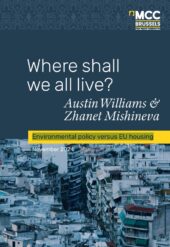 This new report from MCC Brussels was written by Austin Williams and Zhanet Mishineva and tells the story of how the housing sector across the EU is in crisis. Demand is soaring, yet housing construction lags behind. Despite a construction workforce of 7.6 million people and recovery efforts post-lockdown, homelessness persists at alarming rates—900,000 people without shelter on any given night in 2022.
This new report from MCC Brussels was written by Austin Williams and Zhanet Mishineva and tells the story of how the housing sector across the EU is in crisis. Demand is soaring, yet housing construction lags behind. Despite a construction workforce of 7.6 million people and recovery efforts post-lockdown, homelessness persists at alarming rates—900,000 people without shelter on any given night in 2022.
While challenges like population growth, inflation, and planning restrictions play a role, this report focuses on a less-discussed factor: the impact of sustainability policies and environmental constraints. As Europe prioritizes carbon reduction and energy efficiency, these measures introduce significant costs, particularly for poorer regions. It examines how these environmental initiatives shape housing availability, comparing their effects on wealthier nations to those in eastern and southern Europe.
NEW:
Five Critical Essays on AI
Authors: Kevin McCullagh, Gareth Sturdy, Tracey Follows, Donald Clark, Norman Lewis. Afterword by Patrik Schumacher
This booklet is an open critique of Artificial Intelligence (AI) as it relates to core aspects of society. From architecture to academia; from data to dependency; from ethics to employment. It explores a range of questions and concerns in a frank and easily accessible manner to help you reach a conclusion; or to read more about the subject.
Will AI lead to increased productivity, better work, or more unemployment; will it lead to a rejevenation of knowledge or its collapse; will it lead to more consumer goods, or too many choices; will it lead to a celebration of human creativity or reinforce the fear of human meddling in the unknown? Will we be in control, or will we lose our identity?
Please feel free to let us know what you think about this edition: “Five Critical Essays on AI” (as well as the other titles below).
Foreword by Austin Williams
Afterword by Patrik Schumacher
Please email futurecitiesproject@gmail.com with comments.
Five Critical Essays on EDI
Authors: Abhishek Saha, Adam N. Mayer, Sarah Phillimore, Zhanet Mishineva, Pauline Hadaway. Afterword by Patrik Schumacher
This booklet is a critique of the Equality Diversity and Inclusion (EDI) doctrine as found in architecture, education, as well as the arts, culture and in legal frameworks.
These essays explore the EDI in an era of Trump, Musk and DOGE, when so many commentators believe that it is on the way out. Is it yesterday’s issue, are EDI activists simply reinventing themselves, or are we seeing a resurgence of EDI 2.0? We are all told about the benefits of EDI; this booklet explores many of its dangers.
Foreword by Austin Williams
Afterword by Patrik Schumacher
Please email futurecitiesproject@gmail.com with comments.
Five Critical Essays on Wellbeing
Authors: Paul Finch, Ken McLaughlin, Rachel Bosenterfer, Ashley Frawley, Helen MacNeil, Nikos Sotirakopoulos. Afterword by Patrik Schumacher
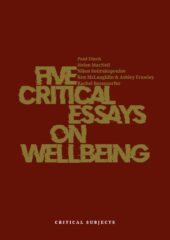 The authors engage with the debate around wellbeing, where, we are told that 17% of the population aged 16 and over had ‘experienced symptoms of a common mental health problem, such as depression or anxiety.’.
The authors engage with the debate around wellbeing, where, we are told that 17% of the population aged 16 and over had ‘experienced symptoms of a common mental health problem, such as depression or anxiety.’.
These essays question whether the way the expansion of categories that we see enveloping ordinary behaviour and emotions, and classifying them as mental health matters, does any help those who need it.
Foreword by Austin Williams
Afterword by Patrik Schumacher
Please email futurecitiesproject@gmail.com with comments.
Five Critical Essays on Architectural Ethics
Authors: Dennis Hayes, Eleanor Jolliffe, Jide Ehizele, Alan Dunlop, James Woudhuysen. Afterword by Patrik Schumacher
 The authors engage with the discussion about ethics in architecture, education and development and how certain ideas are being validated while others are dismissed.
The authors engage with the discussion about ethics in architecture, education and development and how certain ideas are being validated while others are dismissed.
The question is whether the current trend for so-called progressive values reinforces moral behaviour in practice, or whether the suspension of counter-perspectives represents an unethical imposition.
Foreword by Austin Williams
Afterword by Patrik Schumacher
Please email futurecitiesproject@gmail.com with comments.
Five Critical Essays on Beauty
Authors: Simon Allford, Wendy Earle, Rachel Jordan, Kevin Rhowbotham, Ike Ijeh. Afterword by Patrik Schumacher
 These five authors’ essays engage with the discussion about beauty in architecture. Increasingly, the critics of beauty tend to condemn its advocates by imposing on them connotations of elitism, pastiche traditionalism or right-wing populism. They ask:
These five authors’ essays engage with the discussion about beauty in architecture. Increasingly, the critics of beauty tend to condemn its advocates by imposing on them connotations of elitism, pastiche traditionalism or right-wing populism. They ask:
Is beauty ethereal or measurable, subjective or objective? Is it a luxury or essential, is it elitist or populist? This pamphlet will hopefully make you think and rethink your approach to the subject.
Foreword by Austin Williams
Afterword by Patrik Schumacher
Please email futurecitiesproject@gmail.com with comments.
Five Critical Essays on “The Crit”
Authors: Penny Lewis, Robert Poll, Alex Cameron, Junjie Xi, Vicky Richardson. Afterword by Patrik Schumacher
 The five critical essays in this pamphlet tackle a range of topic areas relating to the critical appraisal of students’ work, but all assert the need to regain our critical faculties – to see ourselves as helpful, not toxic – and not to be afraid to make fundamental critical judgement calls with knowledgeable discrimination.
The five critical essays in this pamphlet tackle a range of topic areas relating to the critical appraisal of students’ work, but all assert the need to regain our critical faculties – to see ourselves as helpful, not toxic – and not to be afraid to make fundamental critical judgement calls with knowledgeable discrimination.
Foreword by Austin Williams
Afterword by Patrik Schumacher
Please email futurecitiesproject@gmail.com with comments.
Five Critical Essays on Architectural Education
Authors: Shelagh McNerney, Patrik Schumacher, Amin Taha, Theo Dounas, Austin Williams
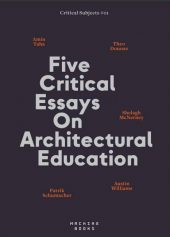 This pamphlet is a critical intervention into architectural education.
This pamphlet is a critical intervention into architectural education.
Specifically referencing the UK, its critique is applicable more broadly. It is the first salvo in what we hope will be an open and challenging conversation.
We want you to read the essays, criticise or support them, pass them on and discuss the issues raised. We know that there are many things to argue about in the state of architecture, urbanism, construction and education. Only by opening the floor to a range of speculative opinions will we be able to clarify the best direction for the subject. We must provide the space for faculty members, academicians, architects and students to genuinely experiment.
Within the academy of all places, dissenting views should be tolerated but argued over, challenged but respected so that bold, new, and sometimes unorthodox ideas can flourish.
Read for free here. FIVE CRITICAL ESSAYS ON ARCHITECTURAL EDUCATION
Letters on Liberty
Greens: the new neo-colonialists
Author: Austin Williams
 The contemporary environmentalist obsession with stopping development is a bigger threat to society than climate change. As humanists, he says, we need to reformulate the idea that all meaningful production requires the appropriation of nature.
The contemporary environmentalist obsession with stopping development is a bigger threat to society than climate change. As humanists, he says, we need to reformulate the idea that all meaningful production requires the appropriation of nature.
A Green desire to clamp down on production, population and any human impact on the planet is a middle-class political fantasy that keeps the poorest in developing nations poor. Holding down people’s aspirations for economic, social and national autonomy is the hallmark of modern day, sustainable, neo-colonialism.
Only £2.00
Buy here: https://academyofideas.org.uk/letters-on-liberty-greens-new-neocolonialists/
New Chinese Architecture:
Twenty Women Building the Future
Author: Austin Williams
This book details the lives, achievements and ambitions of 20 Chinese architects living and working in China today. The practices variously deal with small scale and mega scale, residential and commercial, urban and rural developments. The featured architects are those who have made a significant impact on the national scene. Most of the featured designers are emerging talents in the architectural firmament but we have also included one or two more established architects to indicate some of the continuity as well as the changes that have affected this country in the recent past.
A quick skim through the pages of this book will reveal that all the featured architects are women. This is a book featuring 20 female Chinese architects.
Hong Kong-Zhuhai-Macao Bridge: Crossing the Line?
Urbanie and Urbanus #01
HKIUD Journal, May 2019, pp13-23
 China’s Development Plan for the Guangdong-Hong Kong-Macau Greater Bay Area states that China intends to “fully leverage the composite advantages of Guangdong, Hong Kong and Macau (and) deepen cooperation among the Mainland, Hong Kong and Macau”. As well as making a physical connection and a means of further economic integration, China has constructed a socio-political bridge that, for some, is not built on the most solid foundations. Will both sides of the divide will automatically benefit from physical connectivity.
China’s Development Plan for the Guangdong-Hong Kong-Macau Greater Bay Area states that China intends to “fully leverage the composite advantages of Guangdong, Hong Kong and Macau (and) deepen cooperation among the Mainland, Hong Kong and Macau”. As well as making a physical connection and a means of further economic integration, China has constructed a socio-political bridge that, for some, is not built on the most solid foundations. Will both sides of the divide will automatically benefit from physical connectivity.
Read the full paper here: U+U, Hong Kong Institute of Urban Design. pp13-23 pdf
Yiwu: China’s Neo-Liberal City
Urban Design, May 2018, Issue 148
 How China’s growth and connectivity with the wider world has transformed a little-known Chinese city. The city of Yiwu has been a beneficiary of “socialism with Chinese characteristics” as a state-sponsored enterprise zone. Local politicians are keen to promote the myth that Yiwu has emerged as the result of China’s contemporary Belt and Road Initiative, but since 1984 it has been allowed to express itself as an urban oasis of free-market capitalism and open-trading unlike any other city in China.
How China’s growth and connectivity with the wider world has transformed a little-known Chinese city. The city of Yiwu has been a beneficiary of “socialism with Chinese characteristics” as a state-sponsored enterprise zone. Local politicians are keen to promote the myth that Yiwu has emerged as the result of China’s contemporary Belt and Road Initiative, but since 1984 it has been allowed to express itself as an urban oasis of free-market capitalism and open-trading unlike any other city in China.
Fresh Soil:
Architectural Modernism in China
LEAP and Serpentine Galleries, Shanghai Art Season Special
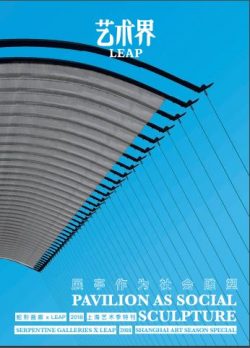 “…Li Xiaodong’s books The Chinese Conception of Space (1991) and Form-making in Traditional Chinese Architecture are deeply challenging for the Western reader. Through these and other contemporary texts it is clear that Chinese architecture still reacts to the pull of tradition, but the reasons for it seem to be contrary to the justifications used in the 1920s. Whereas traditional architecture was promoted as the essence of Chinese nationalism at the beginning of the 20th century and from which Modern architects rebelled, today we see modernising architects in China rediscovering tradition and embracing it…”
“…Li Xiaodong’s books The Chinese Conception of Space (1991) and Form-making in Traditional Chinese Architecture are deeply challenging for the Western reader. Through these and other contemporary texts it is clear that Chinese architecture still reacts to the pull of tradition, but the reasons for it seem to be contrary to the justifications used in the 1920s. Whereas traditional architecture was promoted as the essence of Chinese nationalism at the beginning of the 20th century and from which Modern architects rebelled, today we see modernising architects in China rediscovering tradition and embracing it…”
Read the essay here: Fresh SoilPages 19-23 (12-14 in pdf)
China’s Urban Revolution:
Understanding Chinese Eco-cities
Author: Austin Williams

“A key study on a key issue”,
Kerry Brown, professor of Chinese Studies, Kings College London
“An excellent book…delv(ing) into the testing grounds that are teaching the world how to – and how not to – build the cities of the 21st century”,
Wade Shepard, author, Ghost Cities of China
China is urbanizing fast. By 2025, China will have built fifteen new ‘supercities’ each with 25 million inhabitants. When author Austin Williams started researching China’s Urban Revolution in 2012, China laid claim to 11 Eco-cities… environmentally-friendly, sustainable, smart, low-carbon, urban centres. It now boasts 285. From the edge of an impending eco-catastrophe, we are arguably witnessing history’s greatest environmental turnaround – an urban experiment that may provide valuable lessons for cities worldwide.
This book explores the social, political, historical and cultural context for China’s environmental rise and rise. Williams, senior lecturer at Kingston School of Art and The Architectural Review‘s China correspondent, explores the progress and perils of China’s vast eco-city program, describing the complexities which emerge in the race to balance the environment with industrialisation, quality with quantity, and the liberty of the individual with the authority of the Chinese state.
Style: In defence of…
Series Editor: Austin Williams (published Machine Books)
Short essays that convey what was and what is important about “style”:
These provocations eke out the socio-historical-political conditions as “style” but are meant to intrigue, annoy, challenge, convince and ultimately to polarise and provoke a debate.
Forthcoming “Style: In defence of…” essays include: Karl Sharro on Islamic Architecture; Vicky Richardson on Vernacular Architecture; Theodoros Dounas on Constructivism, Sylvia Chan on Chineseness and Darran Anderson on Expressionism, Owen Hopkins on the Baroque…
The above are Android links. For access to Apple, click here.
Baiziwan District Middle School, Atelier Fronti
Greatest Buildings of the 21st Century (English/Chinese edition)
Author: Austin Williams (Machine Books) – Buy the e-book from Google or iTunes
 Given the unprecedented opportunities that architects have been given to build in China since the turn of the century, it is surprising that we should focus on a modest middle school in the suburbs of Beijing. Yet, as Austin Williams explains, the Chinese firm Atelier Fronti have tried with Baiziwan Middle School to make architecture relevant in a process which has very little regard for it.
Given the unprecedented opportunities that architects have been given to build in China since the turn of the century, it is surprising that we should focus on a modest middle school in the suburbs of Beijing. Yet, as Austin Williams explains, the Chinese firm Atelier Fronti have tried with Baiziwan Middle School to make architecture relevant in a process which has very little regard for it.
The Greatest Buildings of the 21st Century series is not simply an attempt to celebrate the best in contemporary architecture although it is very much that. It is also a platform for architectural critics to explore in depth their craft through a building they admire. It asks one obvious question, “what is a great building?” but poses another more a complex one: “how should architecture be judged?” This is a special bilingual English/Chinese version, translated by Chang Zhuojun.
The Lure of the City: From Slums to Suburbs
Editors: Austin Williams and Alastair Donald (Pluto Press)
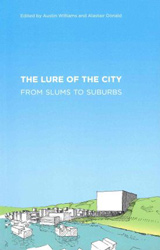 The United Nations describes cities as ‘dynamic centres of creativity, commerce and culture’. Conversely, they are often described as hectic, tense, polluted and overcrowded. Two distinct descriptions, but are they mutually exclusive? Don’t they both describe the city?
The United Nations describes cities as ‘dynamic centres of creativity, commerce and culture’. Conversely, they are often described as hectic, tense, polluted and overcrowded. Two distinct descriptions, but are they mutually exclusive? Don’t they both describe the city?
Is the city, the place of anonymity, or civic engagement? Will developing countries lose cultural identity in their transition to urban economies – and, if so, will it be worth it? Are cities dynamic centres of innovation and culture – or dated modes of organization? Are cities sociable, or anti-social? Should historic centres be conserved or demolished to create new? Are cities too impersonal or welcoming? Is a stress-free, uncongested city a contradiction in terms – but should we be striving for it anyway? Do cities encourage liberal free expression, or conformity?
This book explores the paradoxes, contradictions and challenges of an urban world.
“It is quite odd, even mildly bracing to read such a determinedly modernist book”… “a provocative and very readable book.” Edwin Heathcote, Financial Times
Buy this book from Amazon (UK)
The Future of Community: Reports of a Death Greatly Exaggerated
Editors: Martin Earnshaw, Dave Clements, Alastair Donald & Austin Williams (Pluto Press)
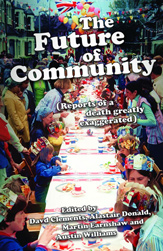 We are constantly being told that we are losing a ‘sense of community’. This book shows that the notion of community is actually under threat from the very thing supposed to protect it: relentless government intervention.
We are constantly being told that we are losing a ‘sense of community’. This book shows that the notion of community is actually under threat from the very thing supposed to protect it: relentless government intervention.
The family and collective institutions have certainly suffered in the face of market forces and moralising. But, the authors argue, a far bigger threat to social solidarities comes from the crisis of political confidence. Replacing a political vision for society with instrumental attempts to create ‘community’ has given rise to unelected ‘community leaders’, and formalised community relationships to the detriment of traditional freedoms. This book argues that for genuine communities to flourish we need a space, free from official intervention, where people can confidently negotiate their own relations.
Buy this book from Amazon UK.
Enemies of Progress
Author: Austin Williams (Imprint Academic)
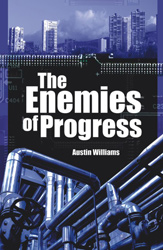 This book examines the concept of sustainability and presents a critical exploration of its all-pervasive influence on society. Each chapter examines a particular guise of ‘sustainability’; from architecture to energy policy, from first world to underdeveloped world. It is, the author argues, a pernicious, corrosive doctrine that has survived primarily because there seems to be no alternative to its canon: in effect, its bi-partisan appeal has depressed critical engagement and neutered politics.
This book examines the concept of sustainability and presents a critical exploration of its all-pervasive influence on society. Each chapter examines a particular guise of ‘sustainability’; from architecture to energy policy, from first world to underdeveloped world. It is, the author argues, a pernicious, corrosive doctrine that has survived primarily because there seems to be no alternative to its canon: in effect, its bi-partisan appeal has depressed critical engagement and neutered politics.
‘A well argued humanist alternative to the present conformist consensus – a very persuasive contribution by a thoughtful subversive.’ Frank Furedi, Professor of Sociology at University of Kent, author of ‘Politics of Fear’
‘A much needed diagnosis of the bleak anti-human pathology sometimes described as environmentalism’ Dominic Lawson, columnist for The Independent
‘Austin Williams has a gift for lobbing well-directed grenades.’ Philippe Legrain, author ‘Immigrants: Your Country Needs Them’
Read an edited sample of Chapter 5 The Pessimists: Putting the brakes on China and India.
For further details and reviews visit the Enemies of Progress blog site.
Buy this book from Amazon (UK)
Shortcuts Book 1: Structure and Fabric. Book 2: Sustainability and Practice
Author: Austin Williams
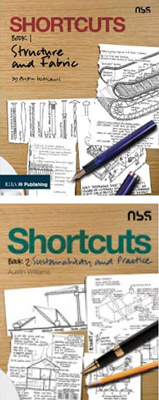 These two books are written and illustrated by Austin Williams and provide an idiot’s guide to construction. Presented in a journalistic style aided by cartoons, sketches and detail drawings, Williams says “effectively, I read the regulations so that you don’t have to”… (although there are plenty of references for further reading should you so wish).
These two books are written and illustrated by Austin Williams and provide an idiot’s guide to construction. Presented in a journalistic style aided by cartoons, sketches and detail drawings, Williams says “effectively, I read the regulations so that you don’t have to”… (although there are plenty of references for further reading should you so wish).
“Although I have 25 years experience in Building Control, I still find that it is easier to explain regulations to a client using Austin’s Shortcuts than to refer to the Approved Documents.” Geoff Wilkinson, Vice Chair, Faculty of Building Control and Standards, CIOB
“Shortcuts is very much like its author: swiftly getting to the core of the matter in a precise and concise style. Importantly it also sees through much of the bureaucracy” Simon Allford, AHMM
Buy Shortcuts 1 & 2 from RIBA Bookshops
Manifesto: Towards a New Humanism in Architecture
Author: Mantownhuman
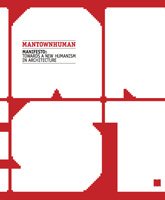 “We, in ManTowNHuman, believe that a more critical, arrogant and future-oriented cadre of architects and designers can challenge the new eco-centred, bureaucratic, anti-intellectual, fragmentary, localising consensus and in this way can lay the ground rules for overcoming the cosy rut in which architecture now finds itself.”
“We, in ManTowNHuman, believe that a more critical, arrogant and future-oriented cadre of architects and designers can challenge the new eco-centred, bureaucratic, anti-intellectual, fragmentary, localising consensus and in this way can lay the ground rules for overcoming the cosy rut in which architecture now finds itself.”
As featured in Penguin Modern Classics 100 Artists’ Manifestos: From the Futurists to the Stuckists
“I love this manifesto – it has guts and irreverence and gusto. Almost every aspect of it is designed to upset and maybe that is the point. It is wilful and dangerous, with a strong tone of belligerence.” Will Alsop
“This manifesto is the big reminder not to be scared of being scared or being scary… I loved reading it.” Thomas Heatherwick
Find out more about mantownhuman here
For a hard copy of the manifesto, please send an A4 s.a.e. to 45 St Lawrence Court, De Beauvoir Estate, London, N11 5TP.
Download a pdf of the manifesto here
Society Wars
Editors: Dave Clements and Martin Earnshaw (Social Policy Forum)
Big society, broken society, sick society, stuck society? Who gets to say how we should behave when it comes to what we smoke, drink and eat? Politicians, nudgers, doctors? Should volunteering for the greater good be compulsory? Does living life dependent on welfare risk actually making people morally and physically sick? Should our schools become engines of social mobility’ or are they ill-equipped to tackle ingrained social inequalities? Written for the Battle for Social Policy debates at the Battle of Ideas 2011, these essays take a step back from the minutiae of policy-making to consider the wider societal implications.
Download a pdf version of Society Wars here
Attitudes to the City
Authors: Martin Earnshaw, Dave Clements (editors)
This Attitudes to the City research paper investigates the attitudes that people have towards crime and anti-social behaviour and how their views reflect – or impact upon – their primary concerns of city life in the UK. It explores issues that are often regarded as ‘problems’ for cities and society.


